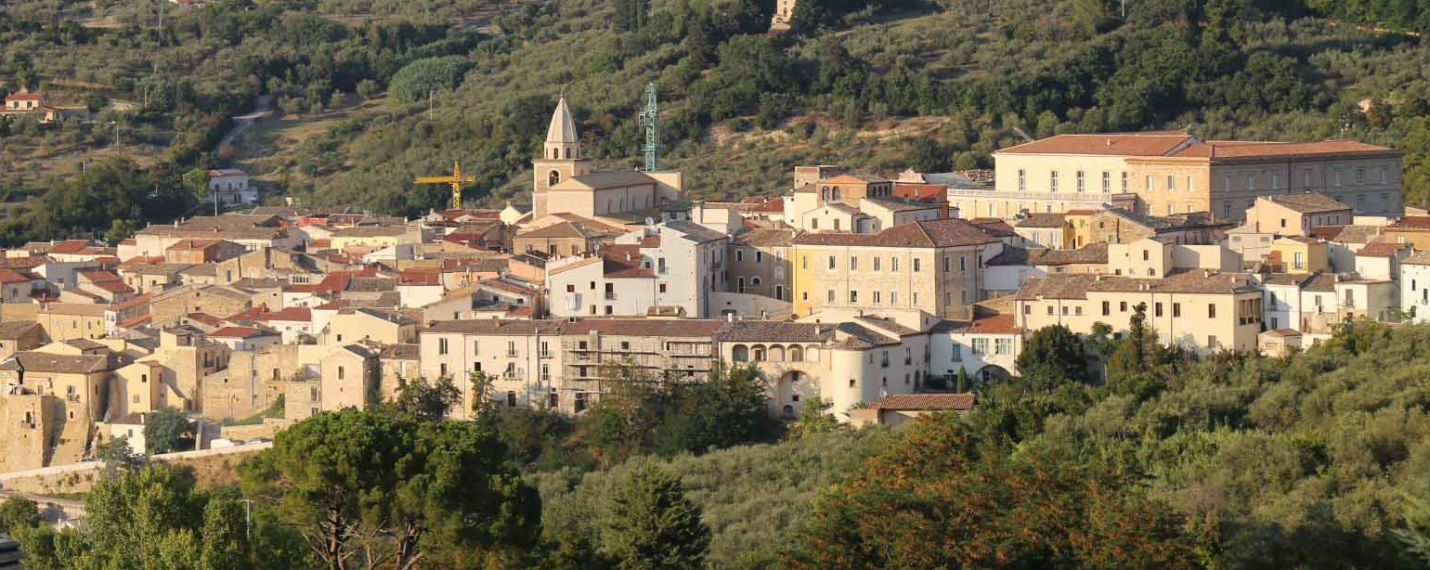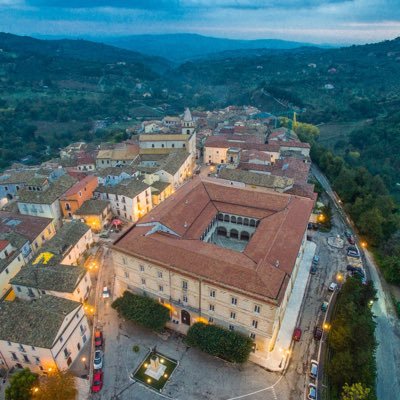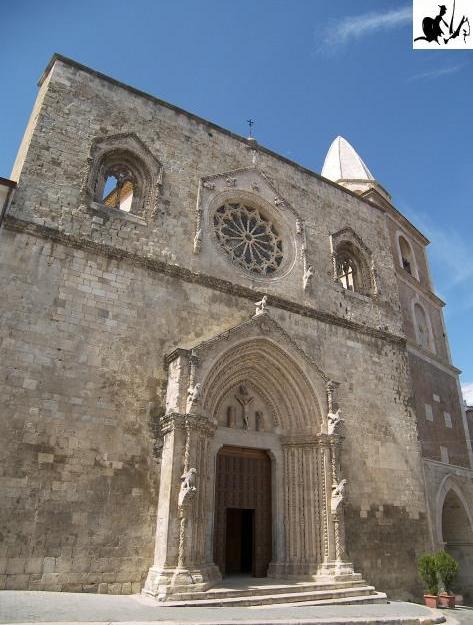



Larino (Larinum in Latin) is an Italian town in the province of Campobasso in Molise. Home to some institutions and public services, including the court and the maximum security prison, it also has various production activities operating mainly in the agricultural sector and in small industries.

Noteworthy are the historical testimonies of past ages, especially of the Roman age, with archaeological sites of considerable interest such as the amphitheater, the thermal baths, the forum and mosaics, from the Middle Ages such as the Romanesque, Gothic Cathedral dedicated to the Patron Saint San Pardo, from the characteristic and unique of its kind 13-spoke rose window, the Palazzo Ducale founded in the 11th century and expanded and modified over the centuries, currently home to the Civic Museum, the Municipal Library and the historical archive, the museum and the Diocesan archive all inside the Palazzo Vescovile, the Convent of the Capuchin friars and some palaces and noble villas of the XVIII and XIX century.

The city of Larino also boasts the first Episcopal seminary of Christianity, founded by Bishop Belisario Balduino (1555-1591) on January 26, 1564, the same day that Pius IV had confirmed the decrees of the Council of Trent. Located in the hills of Lower Molise, at an altitude of about 400 m a.s.l. which is located about 52 kilometers north-east from Campobasso, 90 km from Isernia and 26 km from Termoli and the Adriatic coast. The territory is mainly hilly with a vast flat area (Piane di Larino) which extends towards the Adriatic coast. It borders with the Municipalities of Casacalenda, Guglionesi, Montorio nei Frentani, Palata, San Martino in Pensilis and Ururi.
Larino
Address: Piazza del Popolo, 6, 86035
Phone: 0874 822450
Site:
comune.larino.cb.itLocation inserted by
Culturalword Abco